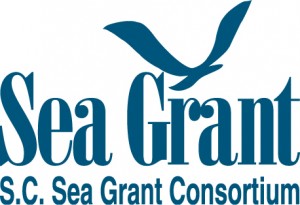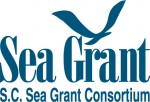
 Earlier this week, South Carolina governor and rising tea party star Nikki Haley cut all state funding for the South Carolina Sea Grant Consortium. Sea Grant programs are a critical part of the United States’ marine and coastal research network. In addition to providing millions of dollars in scientific grants, the national Sea Grant college program (of which the South Carolina consortium is a member) connects scientists, educators, and citizens with the goal of “helping citizens utilize scientific information to support a vibrant economy while ensuring ecological sustainability” (source). In total, there are 32 Sea Grant programs throughout the country, which help coordinate research and strategic goals with experts in every state that borders an ocean or one of the Great Lakes.
Earlier this week, South Carolina governor and rising tea party star Nikki Haley cut all state funding for the South Carolina Sea Grant Consortium. Sea Grant programs are a critical part of the United States’ marine and coastal research network. In addition to providing millions of dollars in scientific grants, the national Sea Grant college program (of which the South Carolina consortium is a member) connects scientists, educators, and citizens with the goal of “helping citizens utilize scientific information to support a vibrant economy while ensuring ecological sustainability” (source). In total, there are 32 Sea Grant programs throughout the country, which help coordinate research and strategic goals with experts in every state that borders an ocean or one of the Great Lakes.
Despite Governor Haley’s claims, the Sea Grant Consortium is basically the opposite of big government and wasteful government spending. Though they are administered centrally by the National Oceanic and Atmospheric Administration, each Sea Grant program is independently run. According to Executive Director Rick DeVoe,
“It is important to note that the programs we undertake are developed as a result of the input we solicit from our stakeholders along the coast and inland – businesses and organizations, NGOs, and people who depend on coastal and marine resources for their livelihoods, their pleasure and their quality of life….The S.C. Sea Grant Consortium generates and applies science-based information on issues and opportunities to enhance the practical use and conservation of coastal and marine resources to foster a sustainable economy and environment in the state and region.”
The state contribution pays mostly for local staff and facilities that are used to apply for and distribute grants. Since much of the funding for grants they distribute comes from the Federal government, the entire state-contributed budget for the South Carolina Sea Grant Consortium is a little over $428, 000 out of a total state budget of around $21,000,000,000, less than the total salaries of the Governor’s personal staff. Cutting this critical program thus results in a 0.002% reduction in state government spending, right after the state of South Carolina got more than $1.4 billion in increased tax revenue as a result of the economy improving.
Projects funded by the Consortium and associated Extension Service in recent years include:
- Working with shrimp fishermen to help improve their catches and better market their product (more info)
- Studying how rising sea temperatures are affecting economically important oysters and fish in local estuaries (more info)
- Working with homeowners to reduce pollution runoff and reduce harmful algae blooms (more info)
- Analyzing factors contributing to the decline in local blue crab populations (and catches) (more info)
- Designing shrimp aquaculture technology with a minimal environmental impact (more info)
- Working with coastal developers to improve the hurricane resistance of houses (more info)
- A study of the critical spawning habitat for local economically important flounder species (more info)
- Working with community leaders and local government to plan future sustainable development (more info)
- A training program for local tourism businesses to help them run more sustainably and cost-efficiently (more info)
- Attempting to minimize the environmental impact of beach renourishment projects on local fisheries (more info)
- Helping to develop academic curriculums that focus on the ocean and the associated coastal economy (more info)
- Working with industry leaders and regulators to develop best practices for aquaculture and fisheries (more info)
- Monitoring coastal erosion patterns and issuing recommendations to developers (more info)
These projects demonstrate that the South Carolina Sea Grant Consortium works with and directly benefits a variety of local stakeholders, all for 0.002% of the state’s total budget, without expanding the role of government at all. Consortium programs fund critical scientific research, support graduate students, facilitate sustainable economic growth, and help solve human health problems. So why would anyone want to cut this program?
Charleston Post and Courier columnist Brian Hicks offered a blunt assessment: “it’s all because Gov. Nikki Haley was looking for some low-hanging fruit in the state budget so she could curry favor with people who don’t understand government.”
In a letter to the state House of Representatives (available here), Governor Haley explains the reasoning for numerous budget cuts. Subheadings of this letter include “Focusing on the Core Functions of Government”, “Shutting Down Programs That Don’t Work”, “Adopting Responsible Budgeting Practices”, and “Good Government”. In addition to cutting all state funding to the Sea Grant Consortium, Governor Haley wants to reduce funding across the board for programs focusing on the arts, technology , education, and health care. With respect to the Sea Grant Consortium, she writes:
” A primary function of the Sea Grant Consortium is to help South Carolina’s colleges and universities pursue research funds – especially Federal grants. Instead of supporting a separate infrastructure and a dedicated state agency for this purpose, participating institutions could develop an agreement among themselves, through which they could negotiate their respective financial contributions without the state’s direct involvement.”
In other words, Governor Haley proposes that scientists in South Carolina unilaterally cut themselves off from a nationwide system that has helped science, education, economic development, and human health for decades on a shoestring budget, with broad bipartisan support throughout almost all of its operation, because… she doesn’t really say why, but based on her typical rhetoric, one can assume it has something to do with “freedom”.
The state legislature, which initially approved the $428,000 budget for the Consortium, meets next week to consider overriding Governor Haley’s vetoes. According to Rick Devoe,
“The S.C. House of Representatives reconvenes on Tuesday, July 17, and the S.C. Senate convenes on July 18. Of course these dates could change at any time. The purpose of the legislature coming back is primarily to address the vetoes. In order for a veto to be overridden, it must be overridden by both houses of the Genral Assembly, It is first considered and voted on in the House of Representatives; and in order to override a veto, it must receive two-thirds of the votes in the House to do so. If it is overriden in the House, it then goes to the Senate, and they must also vote by a two-thirds margin to override a veto. If it is not overriden in the House, the veto is sustained, and there is no action taken by the Senate.”
Those who would like to support Sea Grant can sign a petition here, and can call Senators and Representatives. Please do so before Tuesday morning.

3 of the last 5. Guess the future wasn’t very forseeable…..
This concludes our political rantings for the foreseeable future.
Just more evidence that psychics and fortune tellers are a sham
It seems the governor does not really understand what S.C. Sea Grant Consortium does. It’s work is truly necessary and greatly appreciated by the people they help in South Carolina. Hopefully, when the legislature returns they will override her veto.
I agree, Judith. I have faith in the common sense of our legislators that they’ll override the veto on July 17 and 18!